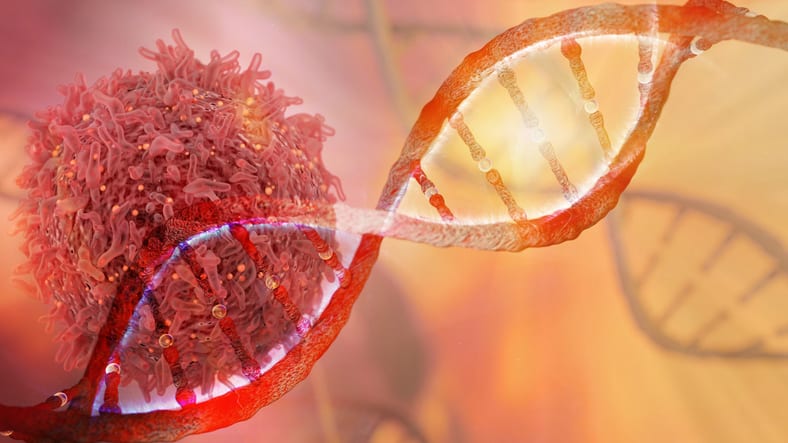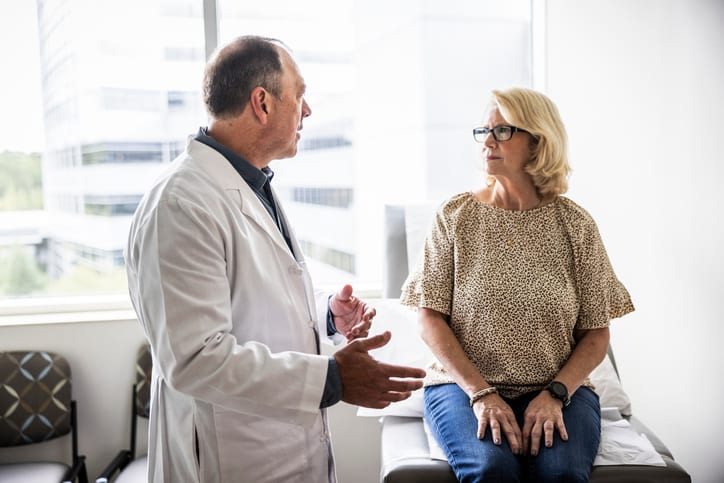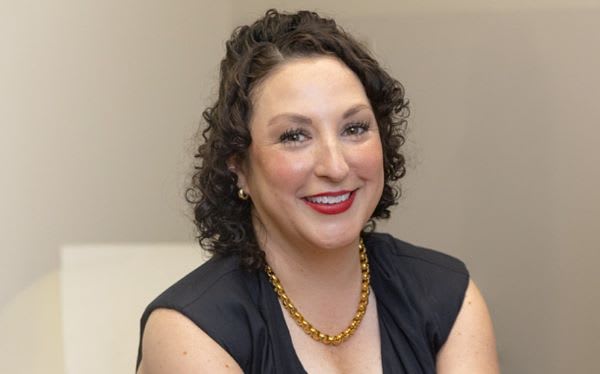Breast Cancer Screening
Comprehensive Breast Screening for Early Detection
At the Providence Swedish Cancer Institute, we believe early detection and monitoring are key to delivering the most successful outcomes - finding cancer in its earliest stages when treatment is most effective. We offer convenient breast cancer screening programs throughout the Puget Sound region.

Our Approach
Providence Swedish offers advanced, American College of Radiology-accredited breast imaging services at all locations to support early detection and prevention.
If further testing is needed, our team clearly explains your options and makes sure that you get scheduled as soon as possible. We're here to provide clear answers, reliable results, and the personalized support that you deserve, so you can feel confident throughout your journey to better breast health.
What to Expect
Breast imaging is a safe and reliable way to check your breast health. From scheduling your appointment to getting your results, you have a compassionate team of breast specialists focused on making your experience as comfortable as possible.
Before your appointment, avoid using lotions, deodorants, or perfumes on your chest and underarms, as these can affect imaging results. You may find it more convenient to wear a two-piece outfit, such as a top and pants, rather than a dress, as you probably only need to remove your top.
If you're new to Providence Swedish, please try to bring any previous breast imaging records that you have available. It's also good to think of any questions that you might have for our team ahead of time.
A screening mammogram involves breast compression for a few moments to capture clear images. Our care team explains each step and positions you for the images.
In some cases, additional detailed imaging is required and may involve an ultrasound or breast MRI. Once the imaging is done, you can return to your daily routine. Our board-certified radiologists carefully review your images and results, which are uploaded to your electronic health record, and forwarded to your primary care doctor.
Breast imaging can help detect changes in your breasts at the earliest stages, often before symptoms appear. Early detection can lead to quicker diagnosis and treatment, improving outcomes.
While imaging is noninvasive and generally safe, there may be minimal risks, such as low-dose radiation exposure. Our experts use advanced technology to maximize accuracy and minimize risks.
Your care doesn't end after your imaging appointment. If additional imaging or follow-up tests are needed, we guide you through the process and provide personalized support, ensuring all your questions get answered.
Whether you need further testing or a consultation with a specialist, our team is here to help you navigate your care with compassion.

Mammography Scheduling Just Got Easier
Established patients with a MyChart account can schedule their screening mammogram online. The process is easy and allows you to schedule a mammogram online, 24/7.
Returning patients can schedule with MyChart.
Frequently Asked Questions
The Providence Swedish Cancer Institute offers a full suite of breast cancer screening services, which include:
- Breast MRI
- Breast ultrasound
- Genetic testing and counseling
- HER2/neu testing
- Hormone receptor status
- Mammogram (2D, 3D)
You can find more information about testing and diagnostics on our Breast Cancer Program page.
Breast imaging is an important tool for monitoring your breast health. It helps find changes or abnormalities early – often before symptoms appear – allowing for evaluation and faster treatment if needed.
Whether you need a routine screening, a follow-up on a previous result, or want to investigate a specific concern, breast imaging helps you and your care team make more informed decisions about your breast health.
When scheduling your mammogram, please let us know:
- When you received your last mammogram, and where it took place
- If you have special needs – like a wheelchair or walker, interpreter services, etc. – to ensure that we have the appropriate staff available for assistance
- If you are pregnant or nursing
- If you have breast implants
- If you had any recent breast surgeries or biopsies
- If you have a cardiac monitor
You will need to come to an imaging center at one of our facilities or clinics to receive a mammogram.
However, we also offer a Providence Swedish mobile mammography coach that travels to various sites throughout the year to make it easier for women over 40 who aren’t experiencing any new breast symptoms to get their mammograms.
View our schedule for the mobile mammography program and learn more about it
For a mammogram, you stand or sit while your breast is positioned on a flat surface and compressed to capture detailed images.
If additional imaging is required, you may have an ultrasound or breast MRI.
For a breast ultrasound, a technician applies a warm gel to your skin and moves a handheld device over the area to create real-time images.
For a breast MRI, you lie face-down on a cushioned table with openings for your breasts. The table slides into a scanner, which uses magnets and radio waves to create images.
Breast imaging generally isn’t painful. Some types, like mammograms, may cause brief discomfort as your breasts are compressed to capture clear images. That discomfort typically lasts only a few seconds.
For ultrasounds and MRIs, the procedures are painless, though you may feel slight pressure from the ultrasound device or need to lie still for an extended period. Our team works with you to minimize discomfort during your exam.
The length of your breast imaging depends on the type of exam:
- Mammograms typically take about 20 minutes, including preparation.
- Breast ultrasounds last around 15-30 minutes.
- MRIs can take 30-60 minutes.
Our team works to get your imaging done efficiently so you can get back to your day as soon as possible.
If your screening results show something abnormal or unexpected, we know it feels concerning — but it doesn’t necessarily mean cancer. Your doctor may recommend additional tests, like imaging, bloodwork, or a biopsy, to get more clarity. No matter the outcome, your care team is here to support you, answer your questions, and guide you through the next steps.
News & Info From Our Experts



